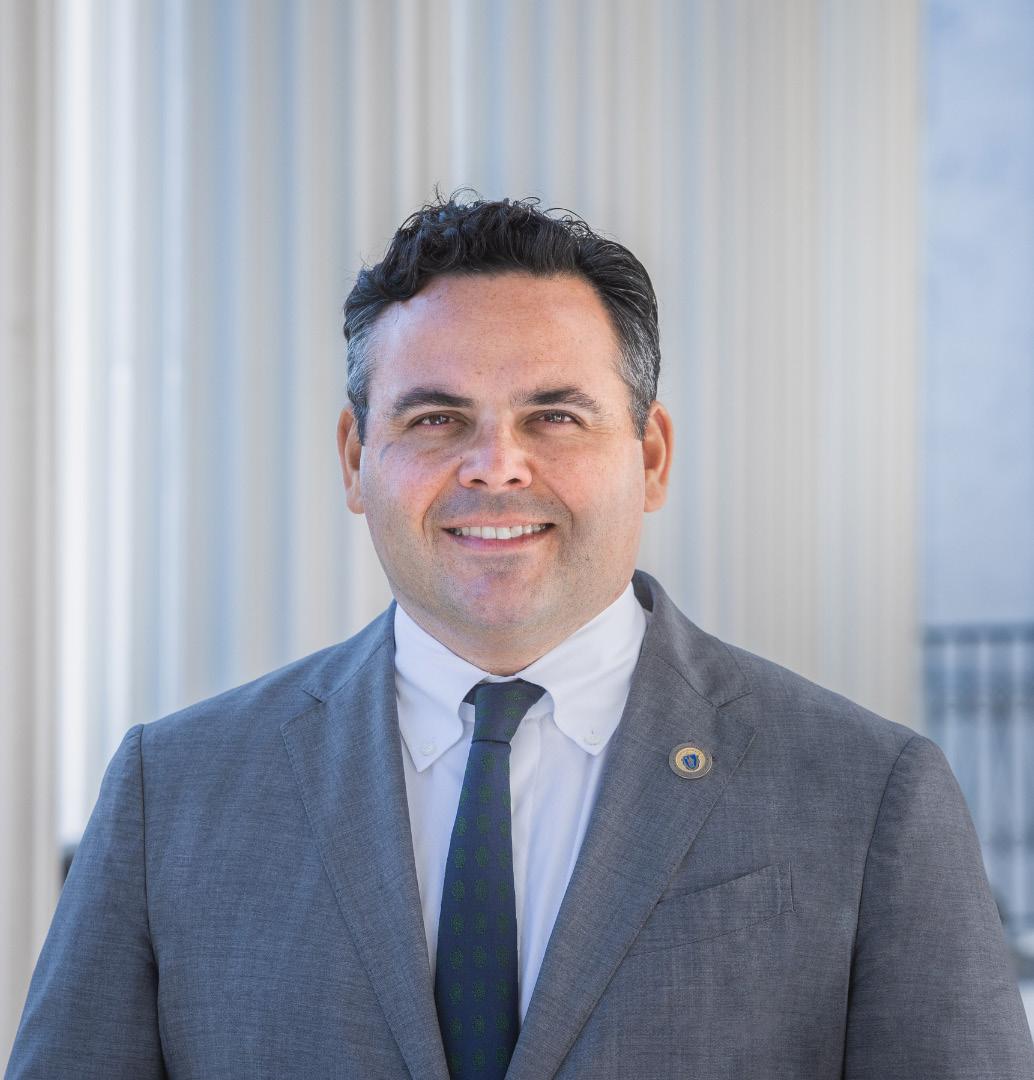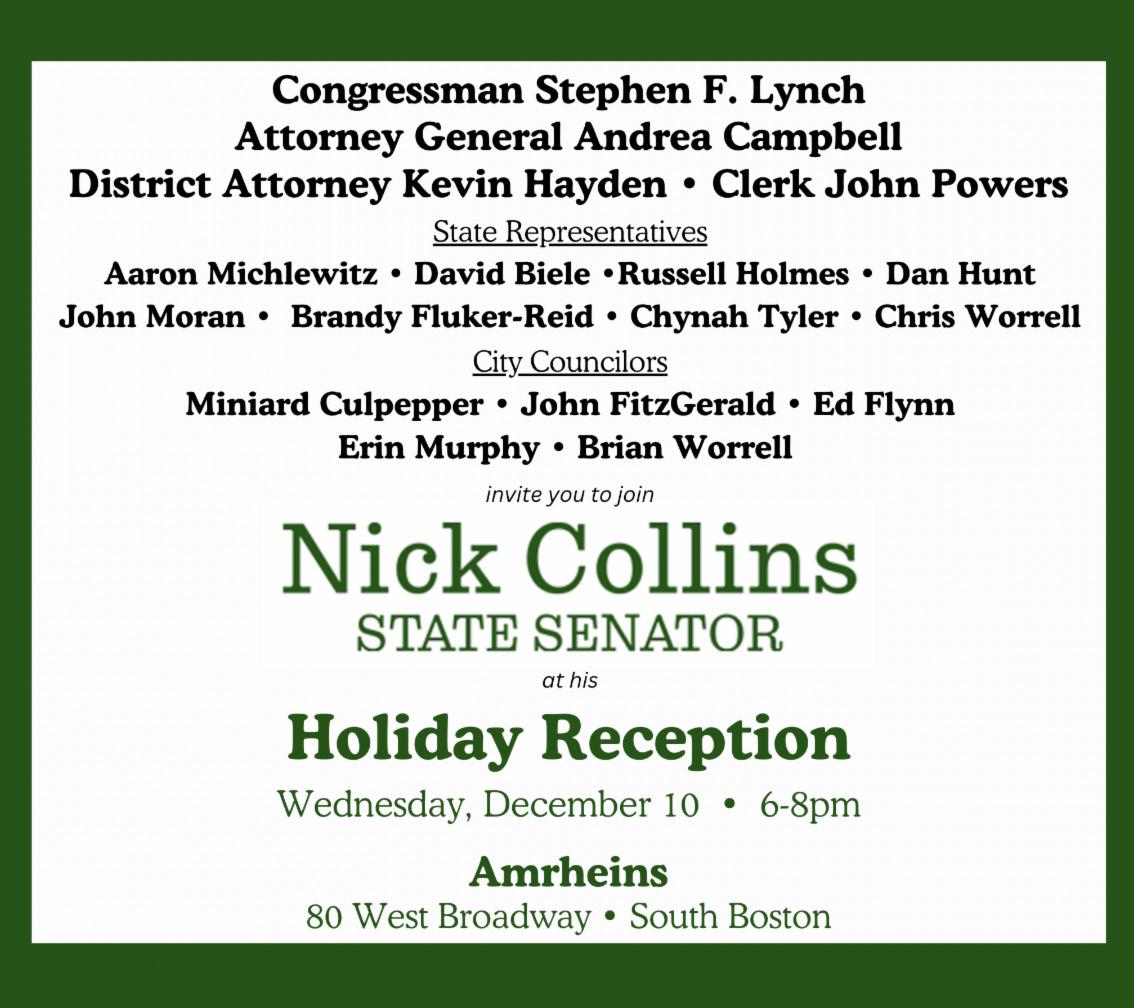Continued from Page 1 Rideshare Assaults establishment in South Boston to her home. In 2018, a driver was charged with exposing himself to two women near Downtown Crossing. In 2015, another driver was convicted of aggravated rape, kidnapping, assault and battery.
“Incidents of sexual assault on rideshares continue to be deeply disturbing, unsettling for residents, and all too frequent across the City of Boston. Ensuring the safety of all of our residents, especially young women, is critical,” said Councilor Flynn. “This bill
is a common sense approach to try to protect those in a vulnerable state, and do all that we can to prevent similar incidents from happening again.”
For more information, please contact Councilor Flynn’s office at 617-635-3203 or Ed.Flynn@Boston.gov.
Sen. Collins Advocates for Keeping Native American Representation on the State Flag
With the Massachusetts Seal, Flag, and Motto Advisory Commission nearing its deadline to forward a final recommendation to the State House by December 15, 2025, Senator Nick Collins, who serves as co-chair of the Joint Committee on State Administration and Regulatory Oversight, is raising urgent concerns about the process. The Commission, created by the
Legislature to update the state’s historic emblems and which recently concluded its statewide public hearings, released three proposed designs for the seal, flag, and motto. Senator Collins is joining Native American residents who say they have been largely excluded from meaningful participation in the process and from the resulting proposals.
In a letter submitted to the commission, Senator Collins stated his strong opposition to the most recent proposals. He argued that the attempt to remove the representation of the Native American community as a central element of the Massachusetts seal and flag is particularly troubling.
“The depth and significance of Native American history here in Massachusetts including as it relates to the early
formations of our democracy cannot be whitewashed away by this Commission. So, I urge you to reject the proposals put forth and maintain the presence of our Native American community front and center on our flag and seal.”
Senator Collins also raised significant concerns about the proposed changes to the state motto, stating that it should remain in Latin. He emphasized that many of the most widely spoken languages in the Commonwealth are rooted in Latin, which he believes supports keeping the motto in its current form for the sake of inclusivity.
“Spanish, Portuguese, Italian, French, Cape Verdean Creole, and Haitian Creole are all derived from Latin. If one of the missions is to be inclusive, having the motto be spelled out in Latin does just that. An effort to turn motto into English only would exclude those who speak who do not speak or speak English as a second language to the aforementioned six languages.”
Kathryn Akuahaha Watson, an Elder and tribal advisor for the Hassanamisco Nipmuc Tribe, expressed strong objections to what she describes as serious substantive and due process flaws in both the former special commission and the current state advisory commission. She noted that the commission’s original purpose was to address the harmful imagery of the raised arm with a sword on the
crest and seal while retaining the figure of the “unknown Indian.”
“Both the Special and Advisory Commissions have been given a duty, highly significant and impactful for hundreds of years to come and is a unique historical obligation.” Watson said. “The 400-year-old legal and historical Great Seal of Massachusetts is not a matter to be taken lightly, frivolously, whimsically, or capriciously, and its legal images and words must first be respected and preserved.”
According to Watson, the mandate required evaluating only whether specific elements were harmful, offensive, or misunderstood, yet no discussion or vote ever established that the Native figure met those criteria. She argued that its proposed removal is inconsistent with the commission’s charge and unsupported by any formal finding. Watson also criticized the six week window between August and September, which coincided with Pow Wow season, saying it did not provide adequate time for Native input. She added that the 2024 study guiding the commission represented less than one percent of Massachusetts residents and therefore could not be considered a reliable basis for such consequential decisions.
Residents interested in participating in the ongoing process are encouraged to submit written comments directly to the Mass Seal, Flag, and Motto Commission through its website.



